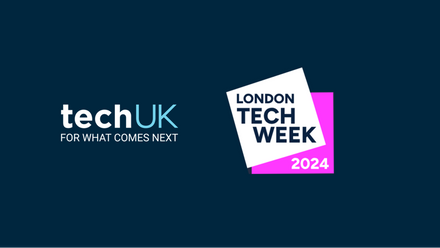Digital Ethics Summit 2020 Day Two- Moving Forward in 2021
To kick start day two of our Digital Ethics Summit Associate Director, Sue Daley was joined by Professor Luciano Floridi, Professor of Philosophy and Ethics of Information at University of Oxford and Director of the Digital Ethics Lab, at the University of Oxford, Oxford Internet Institute.
During their fireside chat, Professor Floridi suggested that the 21st century started with the pandemic. Digital is now everywhere, in a way it wasn't before 2020, when the COVID-19 crisis changed our digital routine. One of the developments we are seeing as a consequence is the use of AI. AI is becoming something ordinary in a way that wasn't necessarily expected until recently. In addition, Professor Floridi remarked, it’s good to see that over-proliferation of AI principles, lists and dystopian sci-fi scenario-mongering has largely diminished.
Luciano commented that ethical frameworks prepare the ground for legislation – like GDPR which was born out of necessity and predicts that the same will happen with AI. In 2016 there was a lot of emphasis on GDPR, data protection and less on AI, but now AI is walking on two legs. He went on further to say that ethics cannot be expected to do all the work and whilst ethics is important, so is regulation.
In terms of priority areas for 2021, Luciano Floridi highlighted that auditing of AI has to become more important; it’s been in the making, but more on the self-imposed side so far. In addition, AI can be extremely useful as a force of good. For example, it can be used in the fight against climate change. Sustainability and social inequality are the two areas where digital technologies, including AI, must make a difference this year.
Watch the full session recording here.
Breakout sessions
COP 26: Digital and the road to Net Zero
This session was chaired by Laura Sandys CBE, Non-Executive Director SGN & Energy System Catapult and Former Chair of the Energy Data Taskforce and panellists include: Greg Jackson, Founder and CEO, Octopus Energy, Eve Joseph, Global Sustainability Customer Lead, Microsoft, Dr Emily Shuckburgh, Director, Cambridge Zero and Steven Steer, Head of Data, Ofgem.
Emily Schuckburgh started by explaining that the UK has the potential to lead the world in efforts towards net-zero but there is a need to look at how we can enhance and create innovation ecosystems to support levelling up across the country. Greg Jackson added that ‘total systems’ thinking, enabled by digitisation, when looking at cutting carbon output, has the potential to invert assumptions, unlock new capabilities and transform industries.
Eve Joseph spoke about the latest changes we’re experiencing in consumer attitudes. Consumers want products and services that are aligned to their values, especially when it comes to the environment and consumers have a lot of power to drive organisations to change their practices. On the subject of consumer trust, Steven Steer highlighted that different people will respond to different approaches/information, so it’s important that we work as a collective to provide different materials and options on this important subject. We must maximise opportunities for public scrutiny and accountability, and if we can achieve that, then trust will grow.
Closing the sessions, speakers put across their key asks for COP26 included the need for real time actions that continue to move the needle, as well as looking at how digital technologies can enable democratisation around these issues.
Watch the full session recording here.
Public engagement and democracy - Getting this right in 2021
This session was chaired by Katherine Holden, Head of Data Analytics, AI and Digital ID at techUK. Panellists included Dr Al Baker, Head of Editorial at Logically, Hera Hussain, Founder at CHAYN and Annemarie Naylor, Director of Policy and Strategy at Future Care Capital.
Annemarie Naylor mentioned there is a role institutions can play to ensure there is good representation of different viewpoints in our use of data and new technologies, however there is a risk that in doing so, we miss out the opinions of vulnerable groups or minorities. A balanced approach is crucial to ensuring that affected communities are involved in the design process. We also need to make sure that we do not lose people in the data. For instance, people with learning difficulties are more likely to die with the COVID. We need to amplify their requirements and we have an ethical and moral duty to care for their needs.
Hera Hussain mentioned that we also need to think about what happens once members of the public do engage in these political debates. There a lot of emphasis on getting peoples’ voices and opinions heard, but little discussion on what happens next. This can lead to people feel frustrated and left with no voice to communicate their concerns.
Dr Al Baker said the awareness of the dangers of misinformation and disinformation has grown significantly during this pandemic. The discussion was broadened out to also include the role and impact that mainstream media can have when disseminating misinformation without educating people on how to interpret such data. Misinformation is everyone’s problem and is a feature of the ecosystem that we find ourselves in now. It is not something that we can educate our way out of but embed it into our design and have a proper rethink of the way media and information work in the public sphere.
Watch the full session recording here.
The post-COVID economic recovery – Achieving inclusive growth
The ‘post-COVID economic recovery – achieving inclusive growth’ breakout session was chaired by Sue Daley, Associate Director at techUK and panellists included: Dr Christina J.Colclough, Founder, Why Not Lab, Jonathan Dowden, Product Manager, Small Business, Sage, Priya Guha, Venture Partner, Merian Ventures and Hetan Shah, Chief Executive, British Academy.
To kick start the discussion panellists outlined some of the challenges being faced as we try to achieve inclusive economic growth in the wake of COVID. The conversation covered issues such as gender/regional disparities, social exclusion, public finances, and the need to make re/upskilling accessible to all.
In answer to the question of whether we have the right tools and mechanisms in place, Hetan Shah clearly stated that we need an economy that works for everyone, with a seat at the table for all; we need to collectively demand change or we will get more of the same. Drawing on inspiration from past industrial clusters, Dr Christina J. Colclough suggested having a community of businesses jointly owning and deploying tech as a bottom up way to grow governance of digital tech and bring in more voices to the table. Priya Guha highlighted the need to get better at tracking taxpayers money, specifically where it is going and to whom. This will help to understand the problems that it can create and its impact on underrepresented groups. On the topic of private sector VC investment Jonathan Dowden highlighted that many SMEs need to be more digitally-enabled and prioritise this a lot more than in the past. This comes back to the problem of investment, and SMEs need more support there.
To watch the full session recording click here.
Final plenary session- Moving forward in 2021
The final plenary session for the Summit was chaired by Sue Daley, Associate Director at techUK and panellists included: Jamie Barnard, General Counsel - Global Marketing and Media, Unilever, Pier Culazzo, Head of Digital Identity, Data Products and Data Science, Visa, Tabitha Goldstaub, Co Founder, CognitionX and Chair of the UK Government's AI Council, Carly Kind, Director, Ada Lovelace Institute and Simon Lambert, Chief Learning Officer, Microsoft.
In terms of the key issues on everyone's radar for 2021, Pier Culazzo highlighted that a key issue is economic recovery, especially across small businesses - as the backbone of our economy, it is vital to help small businesses recover from the economic crisis provoked by COVID-19. Simon Lambert mentioned that a big challenge in 2021 will be closing the digital skills gap that has been exacerbated by an acceleration of digital progress in 2020. How companies integrate digital into their business is important and data literacy is a key skill that the next generation worker will need.
Reflecting on the year, Carly Kind remarked that there is a lack of public trust in our society and a big topic of conversation in 2021 should be ethical tech workers, how we build a space for them and what it means to be an ethical tech worker. Tabitha Goldstaub mentioned that she sees a huge market for new ethically enhancing tech in 2021 and agrees that it's vital to discuss and enhance digital trust.
Finally, Jamie Barnard stated that success in tech is a team sport. Digital ethics did go viral in 2020 and we can see meaningful changes in tech and media platforms that are moving in the right direction, driving change across society - there's still a long way to go, but change is coming. The most successful organisations in 2021 will be the ones that nurture and grow people's skills and participate in digital acceleration firsthand.
Watch the full session recording here.
In conclusion, to rebuild a better digital society in 2021 we must continue working without losing sight of our responsibility across digital ethics. Digital ethics must remain top of the boardroom agenda for businesses to thrive this year and as a collective we need to ensure that the increase in public awareness on digital ethics issues that we’ve experience in 2020 leads to a better, more informed public debate. This will ultimately help improve social inequality and the effective, ethical use of the technologies available to us to tackle some of society’s biggest challenges in the future.
techUK’s Digital Ethics Summit will be back in 2021, if you’d like to get involved or participate in techUK’s digital ethics programme through our Digital Ethics Working Group, please contact [email protected].







